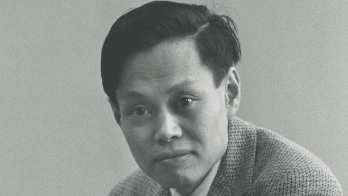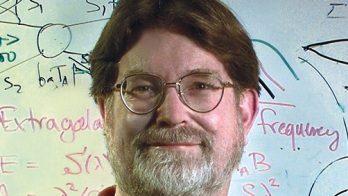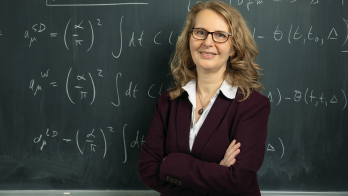
Renowned Cypriot–French theoretical physicist Costas Kounnas passed away suddenly on 21 January, two days before his 70th birthday. Born in Famagusta, Cyprus, Costas did his undergraduate studies at the National and Kapodistrian University of Athens before moving to Paris for his advanced degree. His studies were interrupted by military service during the events in Cyprus in 1974, after which he completed his PhD at the École polytechnique, carrying out important calculations of QCD effects in deep inelastic scattering and jets. He joined the CNRS in 1980, and later took up a postdoctoral fellowship at CERN, where he made seminal contributions to models of supersymmetry and supergravity. In particular, he helped develop supergravity models in which supersymmetry was broken spontaneously without generating any vacuum energy – a bugbear of globally supersymmetric theories. Working with Costas on these models was one of our most exhilarating collaborations.
Costas then moved to Berkeley where he became a world expert in the construction of string models, showing in particular how they could be formulated directly in four dimensions, without invoking the compactification of extra dimensions. In 1987 he took up a position at the École normale supérieure in Paris, where he remained for the rest of his career, apart from a CERN staff position between 1993 and 1998. Many of his best-known papers during these periods concerned cosmological aspects of string models, loop corrections and the breaking of supersymmetry – topics in which he was a world leader. He was also director of the theoretical physics group at the École normale supérieure between 2009 and 2013.
Costas showed how string models could be formulated directly in four dimensions
Among his accolades, Costas was awarded the Paul Langevin Prize of the French Physical Society in 1995 and the Gay-Lussac Humboldt Prize in 2013 for outstanding scientific contributions, especially to cooperation between Germany and France. In addition, he received a prestigious Research Award from the Adolf von Humboldt Foundation in 2014.
His many friends mourn the passing, not just of a distinguished theoretical physicist, but also of a warm colleague with a great heart that he was not shy of wearing on his sleeve. Costas enjoyed participating exuberantly in scientific discussions, always with the overriding aim of uncovering the truth. We remember a joyful and energetic friend who was passionate about many other aspects of life beyond science, including his many friendships and his home island of Cyprus. He was active in efforts to develop its relations with CERN, where it is now an Associate Member on its way towards full membership.







